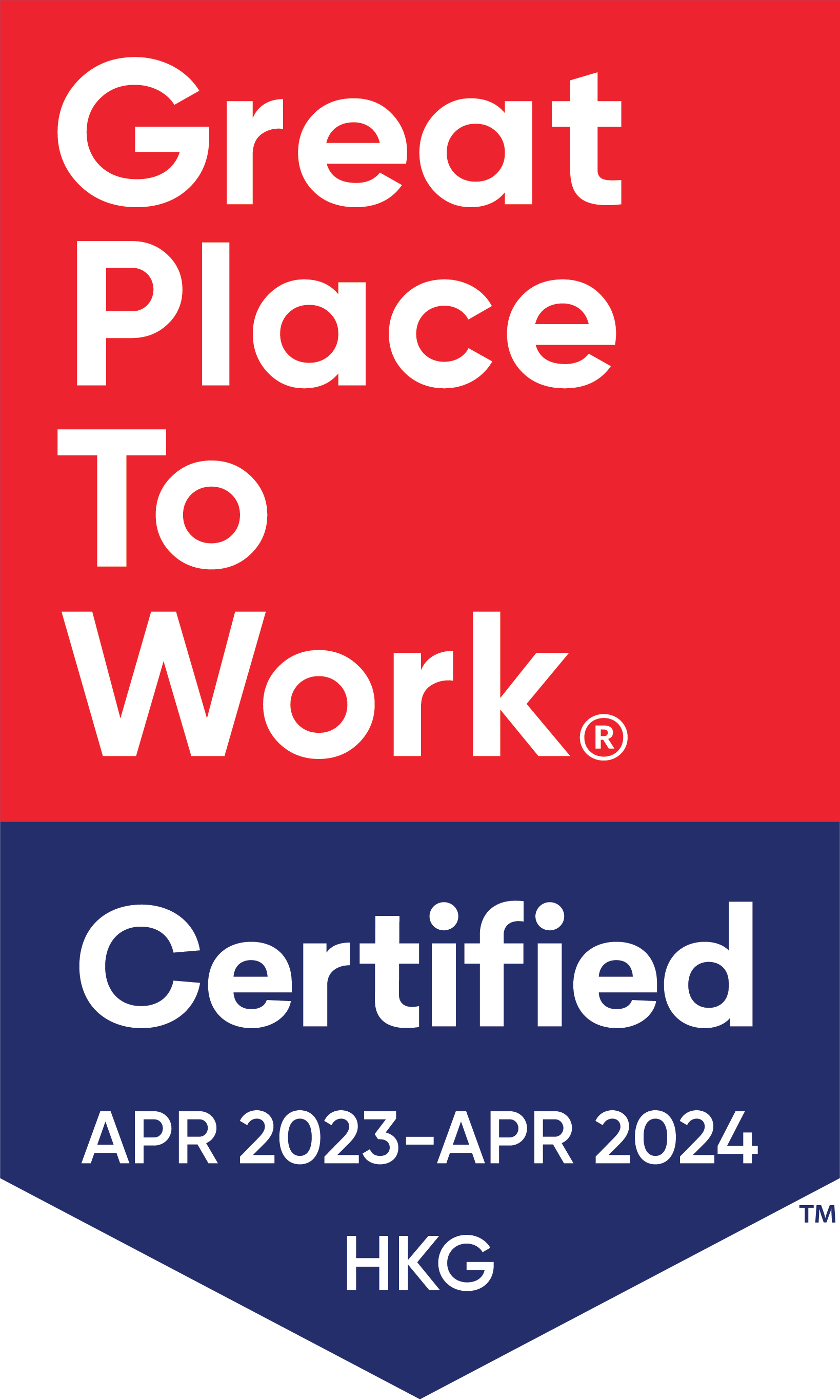ESG & Sustainability - Selecting the Right Training and Education Options

As an ESG recruiter, a common question I hear is: “Do I really need a sustainability certification—and if so, which one?” The answer isn’t one-size-fits-all. While experience remains paramount, the right certification can accelerate your career, bridge knowledge gaps, and signal expertise in this rapidly evolving field.
In this edition, we break down the why, who, and how of ESG certifications—from globally recognised credentials to specialised courses—to help you navigate the options and invest in the right one for your goals.
Why Take an ESG Course and Certification?
In today’s business world, ESG expertise isn’t just valuable—it’s becoming essential. Whether you’re looking to deepen your impact in your current role or transition into sustainability-focused work, an ESG certification offers more than knowledge: it provides tangible proof of your commitment and skills. These programmes help you master the frameworks, tools, and language needed to turn principles into action—from analysing ESG risks to designing strategies that align profit with purpose.
For career changers, certifications provide a structured way to build credibility in the field. They signal to employers that you’re not just interested in sustainability, but serious about applying it in real-world business decisions. For seasoned professionals, certifications offer a way to validate experience, stay ahead of regulations, and lead initiatives with confidence.
Ultimately, ESG training is about more than adding a credential—it’s about equipping yourself with the mindset and tools to drive meaningful change in an evolving corporate landscape. That said, ESG certification and knowledge are not a substitute for work experience within the industry; they are a supplement, not a replacement.
Who Should Consider ESG Certification?
ESG certifications are ideal for professionals across various sectors who want to lead sustainability initiatives and make informed investment decisions. This includes business leaders, investors, and anyone looking to enhance their professional reputation and career prospects by demonstrating a commitment to responsible practices. Whether you aim to meet stakeholder expectations or position yourself as a leader, an ESG certification provides a structured and recognised pathway to achieve these goals.
How Should You Choose the Right Certification and Course for You?
Choosing the right ESG (Environmental, Social, and Governance) certification is a crucial step that can greatly impact your career in sustainable development and ethical business practices.
Personal and Professional Goals
Before diving into the various ESG certifications, reflect on your personal and professional goals. Are you aiming to enhance company performance through sustainable practices, or do you want to integrate ESG risks and opportunities into investment portfolios? Knowing your objectives will help you choose the certification that aligns with your career path and interests. Additionally, consider your current level of ESG knowledge and skills. Are you looking to learn the basics, deepen your expertise in a specific area, or update your knowledge while networking with peers? Having a clear idea of what you want to achieve will guide you in selecting the right ESG training programme.
Relevance to Each Industry
When choosing an ESG certification, consider how it fits with your current industry or the one you aim to enter. For finance professionals, certifications focusing on ESG risks and investment strategies are often more relevant. In contrast, those in corporate roles may benefit more from certifications centred on sustainable development and social responsibility.
For example, a financial analyst might find the CFA Institute's ESG Investing Certificate useful, while a corporate sustainability manager might prefer the Global Reporting Initiative (GRI) Standards Certification. Selecting a certification that aligns with your industry ensures that the skills and knowledge you gain are directly applicable to your professional context.
Continuous Learning Resources
The ESG field is dynamic and constantly evolving. Therefore, it's important to choose a certification that offers ongoing educational opportunities and resources. Look for programmes that provide access to updated materials, discussion forums, and networking opportunities with other professionals in the field.
For instance, some certifications include memberships to professional organisations that offer continuous education and networking events. This can help you stay informed about the latest trends and best practices in ESG, ensuring that your knowledge remains current and relevant.
Evaluating Cost, Time, and Mode of Instruction
When choosing an ESG certification, consider both the cost and the time commitment involved. Ensure that the investment fits within your personal and professional circumstances. Some certifications may offer flexible learning paths or part-time options, which can be particularly advantageous for working professionals. Additionally, consider your preferred learning style—do you prefer pre-recorded modules, live instruction, or exam-based certifications?

Certification List
Certified ESG Analyst® (CESGA): EFFAS
The EFFAS Certified ESG Analyst® (CESGA) programme, developed by industry professionals, offers an extensive understanding of ESG (Environmental, Social, and Governance) issues. It emphasises often-overlooked aspects such as asset classes, due diligence, ESG data, reporting, and regulatory requirements.
By enrolling in this programme, you will gain knowledge in various asset classes, systematic ESG valuation methods, and the complexities of ESG data and regulations. Additionally, you will learn effective strategies to incorporate ESG information into investment analysis, recognising the increasing importance of ESG factors in capital allocation decisions.
FSA® Credential: IFRS Foundation
The IFRS Foundation's FSA Credential certifies professionals' proficiency in sustainability disclosure and analysis. It provides candidates with the expertise to comprehend the relationship between sustainability and financial performance.
This credential assesses candidates on various aspects, including sustainability disclosure frameworks, IFRS Sustainability Disclosure Standards, the significance of material sustainability information in corporate strategies and investment decisions, and the impact of sustainability-related risks and opportunities on financial positions. The programme also imparts skills such as normalising sustainability data for analysis, linking it to financial metrics, and incorporating it into valuation models.
CFA ESG Investing
The CFA Institute offers the globally recognised Certificate in ESG Investing, equipping professionals with the expertise to effectively incorporate ESG factors into their investment decisions. This programme highlights the growing significance of sustainability in investment portfolios, aligning with the current emphasis on ethical and responsible practices. By mastering responsible investment strategies and understanding the core issues related to ESG factors, you can adapt to the evolving needs of the industry and your clients.
Global Reporting Initiative (GRI) Sustainability Reporting Certification
This prestigious programme equips professionals with the skills to effectively navigate and implement sustainability reporting in accordance with the globally recognised GRI Standards. It covers essential ESG issues, data collection and analysis, and stakeholder engagement, ensuring adherence to industry best practices.
Earning this certification demonstrates a commitment to transparency, enhancing both credibility and competitiveness. As the demand for ESG expertise grows, certified professionals are well-prepared to help organisations meet regulatory and investor expectations.
ESG Certificate Programme: Corporate Finance Institute (CFI)
This programme offers a focused curriculum to help professionals master the skills needed in today’s financial world. It combines theory and practice, covering key ESG concepts like materiality, climate risks, and governance, while teaching practical skills such as ESG analysis, emissions calculations, and integrating ESG into financial models. Participants also learn to identify capital market trends and transform ESG data into actionable insights, including creating stakeholder dashboards.
PRI Academy Certificate
The PRI Academy, an initiative of the Principles for Responsible Investment (PRI), offers specialised online courses designed to help professionals integrate ESG factors into their investment strategies. These courses provide a deep understanding of responsible investment, enabling you to confidently communicate on ESG issues and analyse their impact at global, regional, and industry levels.
CDP Climate Change Course
The CDP Climate Change Course equips participants with tools to manage climate risks and apply ESG principles, helping them navigate the complexities of climate change. It covers key topics like emissions, scenario analysis, and TCFD frameworks, supported by real-world case studies and guidance from industry experts. Additionally, the course offers opportunities to network with global peers, fostering collaboration and professional growth.
ESG Reporting Certification Course (Based on Hong Kong Practice) - HKCGI
The ESG Reporting Certification Course equips you with the skills to excel in ESG and sustainability reporting under the HKEX Listing Rules. It covers the latest international standards, including the ESG Reporting Code, climate disclosure requirements, governance structures, strategy setting, and materiality assessment. Practical workshops on ESG report drafting and data collection ensure real-world application.
Upon completion, you’ll receive a certification validating your expertise, along with access to an annual complimentary seminar to stay updated on ESG developments.

University Courses and Certification List
Business Sustainability Programme – INSEAD
Geared toward C-suite leaders and senior managers, INSEAD’s intensive programme decodes the business case for sustainability, offering actionable frameworks for transformation. Learn from global experts how to overcome operational challenges, embed sustainability into core business models, and secure funding for green initiatives.
ESG Leadership: A Pathway to Business Sustainability – University of Cambridge
Cambridge Judge Business School’s programme prepares leaders to navigate the complexities of ESG integration, from stakeholder alignment to regulatory compliance. Through real-world case studies, you’ll learn to develop net-zero transition plans, implement circular supply chains, and craft compelling ESG reports that build trust with investors and consumers.
Harvard Business School’s Sustainable Business Strategy
Harvard Business School Online’s Sustainable Business Strategy course is a premier programme for professionals looking to integrate ESG principles into their organisations. Over three weeks, participants explore how businesses can drive profitability while addressing environmental and social challenges.
Harvard Extension School’s Graduate Certificate in Sustainability
For professionals seeking a deeper dive into ESG and sustainability, Harvard Extension School offers a Graduate Certificate in Sustainability. This flexible, part-time programme consists of four courses, covering topics like corporate sustainability, climate policy, and ESG investing.
Sustainable Finance and Investment – Yale School of Management
Dive into the intersection of finance and sustainability with Yale SOM’s executive programme, designed to help professionals harness ESG data for smarter investment decisions. You’ll explore how environmental, social, and governance factors influence asset pricing, risk management, and long-term portfolio performance.
Article by Aadya Kapur
Share This Blog
Recent Articles















